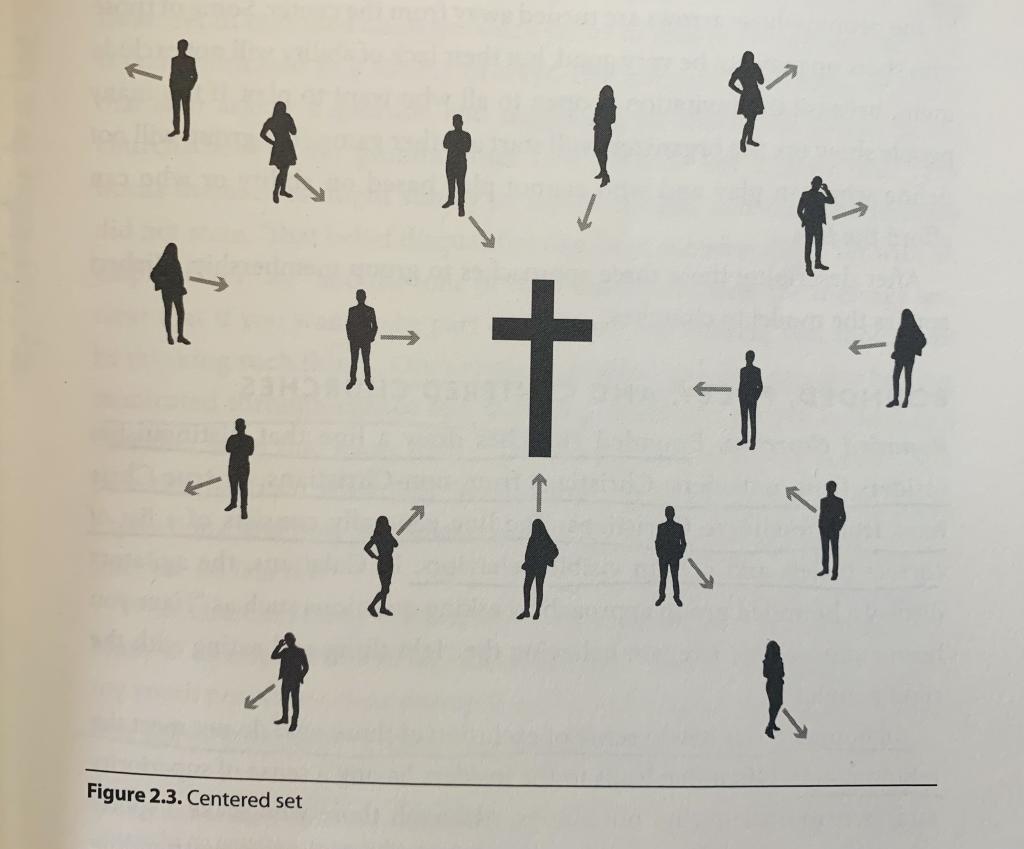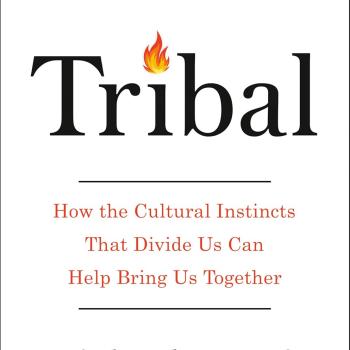
The previous posts explained the differences between bounded-set churches, fuzzy-set churches, and center-set churches. Reviewing Mark Baker’s Centered-Set Church: Discipleship and Community without Judgmentalism, the second post sketched why these three concepts of the church matter practically.
Today, we look at how shame and status dynamics play out within these paradigms. I’ll especially contrast bounded- and centered-set churches.
It’s not that fuzzy churches are immune to such concerns, but rather the most relevant implications are more easily seenby comparing the other church types. I will only make a brief comment about fuzzy groups. Because they show such zealous antipathy towards broader collective norms (aside from individualism, tolerance, and relativism), these churches can unwittingly desensitize people from universal moral standards.
With that said, I’ll state the main claim I make in this post:
Boundedness breeds shame.
Fuzziness fosters shamelessness.
Centeredness cultivates honor.
Drawing Status Lines
The focus of a bounded church is on maintaining boundaries. An ever-growing list of essential criteria emerges to separate insiders from outsiders. Baker says,
“Although not all bounded groups practice shaming, it is common in bounded churches. Drawing a line allows those on the inside to gain status and feel superior to those who do not meet the standards.” (30)
Honor goes to those to satisfy group norms; those who fall short are shamed and excluded. What are the potential effects on both members and those deemed non-members? Ironically, bounded thinking fosters an atmosphere that undermines grace and feeds self-righteousness.
“In bounded churches, those who successfully keep the rules receive affirmation and status, but there is not much emotional space to fail. Because of this, bounded churches tend to emphasize the clearly defined rules that are achievable, rather than talk about character qualities, such as patience, love, and unselfishness, which are harder to achieve or measure.” (43)
We’ve all seen this drive to compare and compete. It manifests in different ways both inside and outside the church. For example, missionaries and pastors like to count new baptisms and churches. The lust for status nudges people to inflate their numbers, even subconsciously.
What’s more, since status is only granted to insiders, bounded churches implicitly encourage people to publicize their good works so that they can be known to others (contra Matthew 6:1-6). Why? Baker explains,
“actually gaining status requires not just doing or believing the right thing–– others must know about it” (54).
It’s easy to see how boundedness stimulates a critical spirit rather than empathy (126).
Christ Centered Conviction and Compassion
Some people might think that centered groups do not care about moral norms (since they don’t emphasize boundary lines). This is a misunderstanding. Such objections confuse judgmentalism with discernment.
Baker says,
“A centered church’s discernment includes concern for how one person’s actions or beliefs may impact others, … discernment is motivated and guided by love for the person who seems to be moving away from the center. Thus discernment is a centered church is not selfish, because it is not about seeking status.” (50)
You see, centered churches are convicted about their members being fundamentally oriented on Christ and steadily moving toward him. One’s conduct matters. Rather than having a critical, judgmental spirit (i.e., typical of boundedness), centered churches seek a spirit of discernment.
In one of my favorite quotes from the book, Baker quotes one interviewee, who says,
It’s “not that we do not deal with behaviors, but we don’t start there. We start with Jesus…. If you are looking at the line and what you are allowed to do, then you are not actually looking at Jesus.” (208-209)
Consider how this conversation relates to the gospel. Centered churches believe the gospel concerns the entire Christian life, not merely conversion. Baker says,
“A bounded church preaches the gospel to outsiders, and once people have responded by crossing over a line, they no longer need to keep hearing and responding to the gospel… A centered church, therefore, will continually remind us of the gospel of Jesus Christ and will orient us to the God of the center again and again.” (79)
In a word, centered churches exalt Christ, the center, rather than boundary lines. Members want to honor him by being like him. This mindset undercuts compartmentalized and competitive thinking.
“A bounded church is saturated with status management energy. A centered church not only saves us from the wound of a bounded approach, but it liberates us from status management.” (133-134)
This post only captures a portion of what Baker says in Centered-Set Church. How else do you see these three paradigms affecting shame and status?













